Victorian Ombudsman Deborah Glass finds ‘creeping politicisation’ in public service
Deborah Glass warns excessive secrecy is leading to scenarios which pose ‘obvious risks to public funds’, such as the clandestine process under which Victoria’s $125bn Suburban Rail Loop was devised.
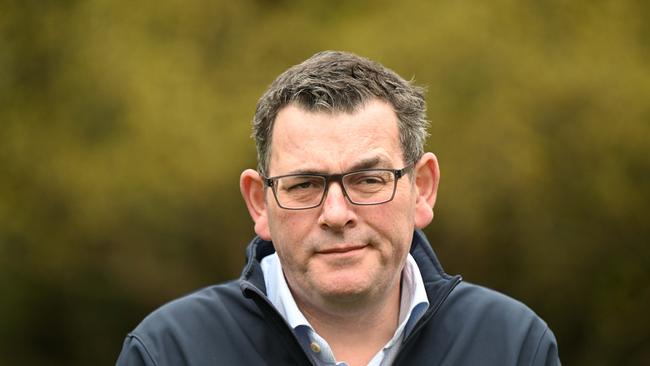
Victoria’s Ombudsman has found the state’s public service is ruled at the highest level by a “culture of fear”, warning of a “creeping politicisation” that is eroding its impartiality, and revealing the Premier’s private office has as many staff as the Prime Minister’s and NSW Premier’s offices combined.
The Ombudsman found that as of June 2022, then-premier Daniel Andrews’s private office had 84 staff members, compared with 50.8 in the Prime Minister’s office, and 34 in the NSW premier’s.
In what is expected to be her most significant report before her term as Ombudsman ends in February, Deborah Glass said “excessive secrecy” and a lack of “frank and fearless” advice was leading to scenarios that posed “obvious risks to public funds”, such as the clandestine process under which the $125bn-plus Suburban Rail Loop was devised.
Premier Jacinta Allan on Wednesday pointed to the Ombudsman’s failure to find any examples of partisan political hiring in the Victorian public sector, and also refused to say how many people were working in her private office more than two months after she took the top job.
“As you can appreciate, we are going through a period of transition in my office … staff are coming and going as a result of the change of Premier in Victoria, so final numbers are not settled,” Ms Allan said. “I also make the observation that in different jurisdictions, numbers of staff are counted in different ways.”
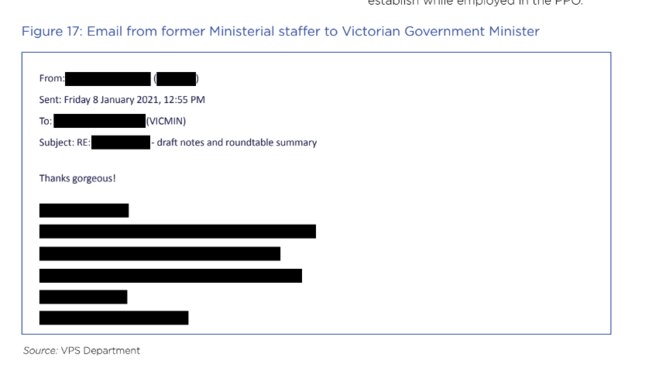
Ms Glass said the growth and influence of the Premier’s private office had been raised by some of those she interviewed, who said it had concentrated decision-making outside specialist departments. “Data we obtained shows the size of the PPO has generally increased each year and has almost doubled since November 2010 … This has coincided with similar growth in the overall number of ministerial staffers employed in Victoria,” she said.
“During this period, the size of the PPO has grown at roughly double the rate of the VPS (increasing by 91 per cent and 46 per cent respectively). The most significant increase in the size of the PPO occurred in 2015, coinciding with the first year of the ALP government led by former premier Daniel Andrews.”
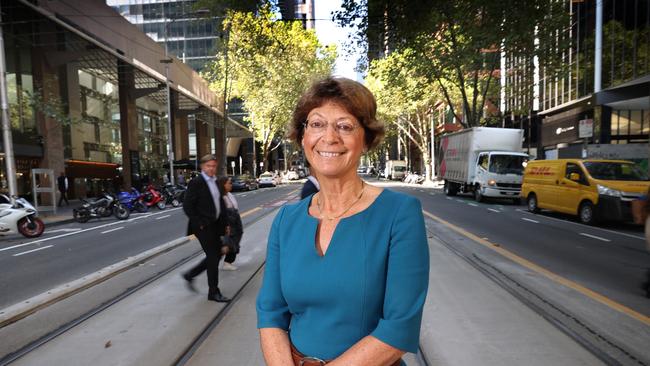
Ms Glass concluded that while she was unable to find sufficient evidence to prove allegations that Victoria’s public service has been improperly “stacked” with ALP operatives, her investigation had uncovered a public sector “that has been politicised in other, equally pervasive ways”.
“Politicisation can take many forms. It is not just the hiring of people with political affiliations. It is also the closing down or marginalisation of apolitical, independent voices,” she said. “Creeping politicisation is a reality in Victoria, and requires urgent attention.”
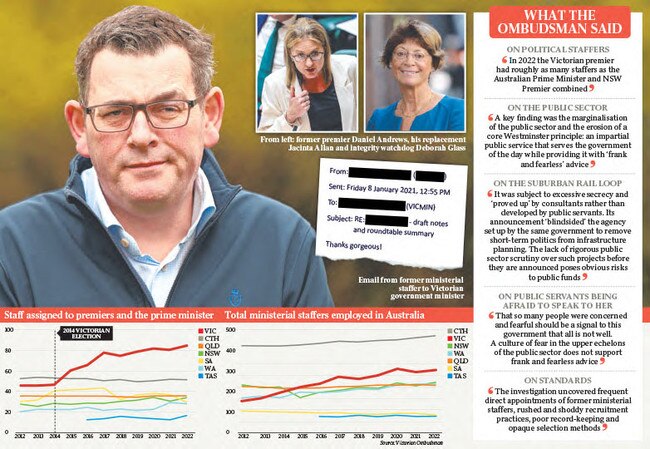
The Ombudsman said she had been troubled by the number of public servants who were afraid to speak with her and her staff, fearing if they contributed and were identifiable as having done so, their careers would be finished.
“Whatever the truth of the question at the heart of this investigation, that so many people were concerned and fearful should be a signal to this government that all is not well,” Ms Glass said. “A culture of fear in the upper echelons of the public sector does not support frank and fearless advice.
“We found it troubling that so many witnesses we spoke with – voluntarily or under summons – anxiously worried about speaking candidly, sometimes even when offered complete anonymity.”
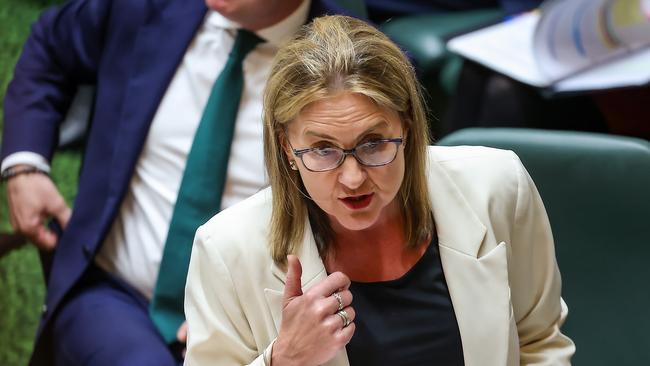
Ms Glass found open and advertised recruitment processes had frequently been sidestepped, undermining confidence that senior public sector hiring decisions were merit-based.
“The investigation uncovered frequent direct appointments of former ministerial staffers, rushed and shoddy recruitment practices, poor record-keeping and opaque selection methods,” she said.
“Perception matters. Not only must merit selection be done, it must be seen to be done. Disregarding this principle makes it less likely the public sector will attract and retain capable leaders.
“The quality and candour of advice upon which important decisions are made will suffer. Confidence in the strict neutrality of public service will be shaken,” Ms Glass said.
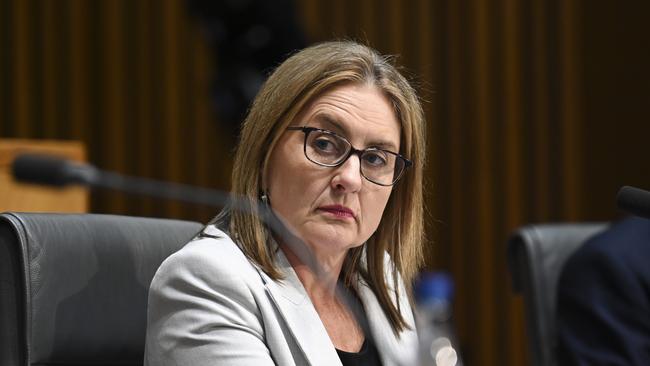
In findings pertaining to the relationship between political and apolitical roles, and relationships between politicians, their staff and public service staff, Ms Glass found some ministerial staffers could find it “difficult to establish appropriate boundaries” with ministers.
By way of example, she cited an email from a former ministerial staffer to a Victorian minister, sent in January 2021, which begins with the salutation: “Thanks gorgeous!”
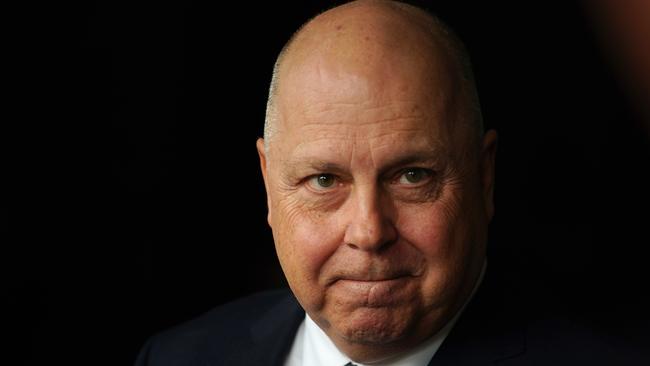
The Ombudsman identified four key areas for reform and made eight recommendations, including establishing a public service head, to replace the Premier as employer of departmental secretaries and administrative office heads.








To join the conversation, please log in. Don't have an account? Register
Join the conversation, you are commenting as Logout